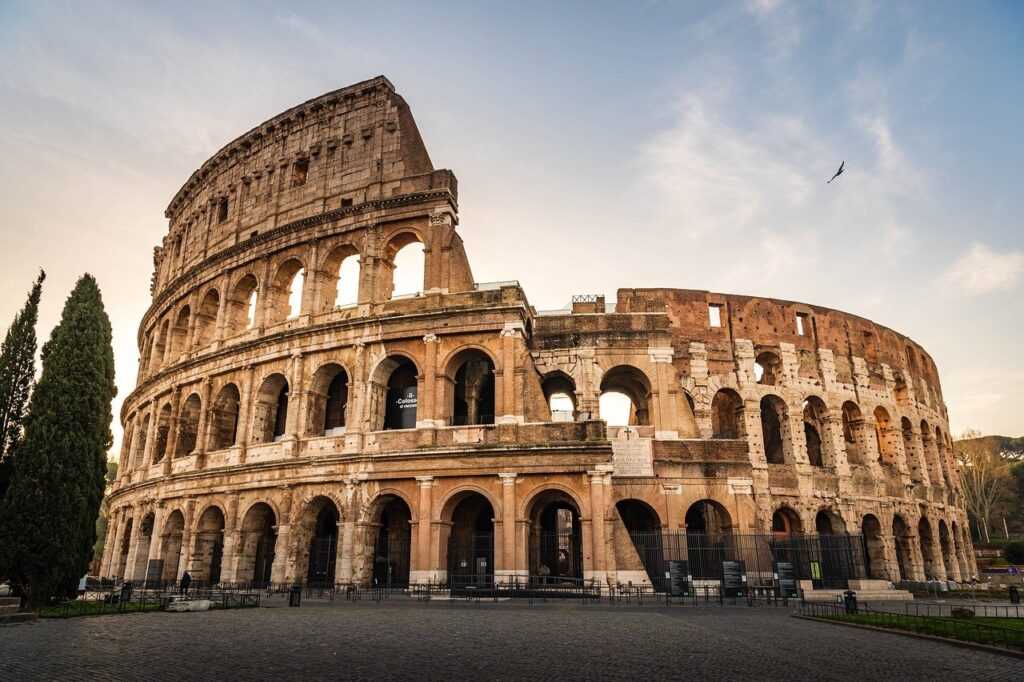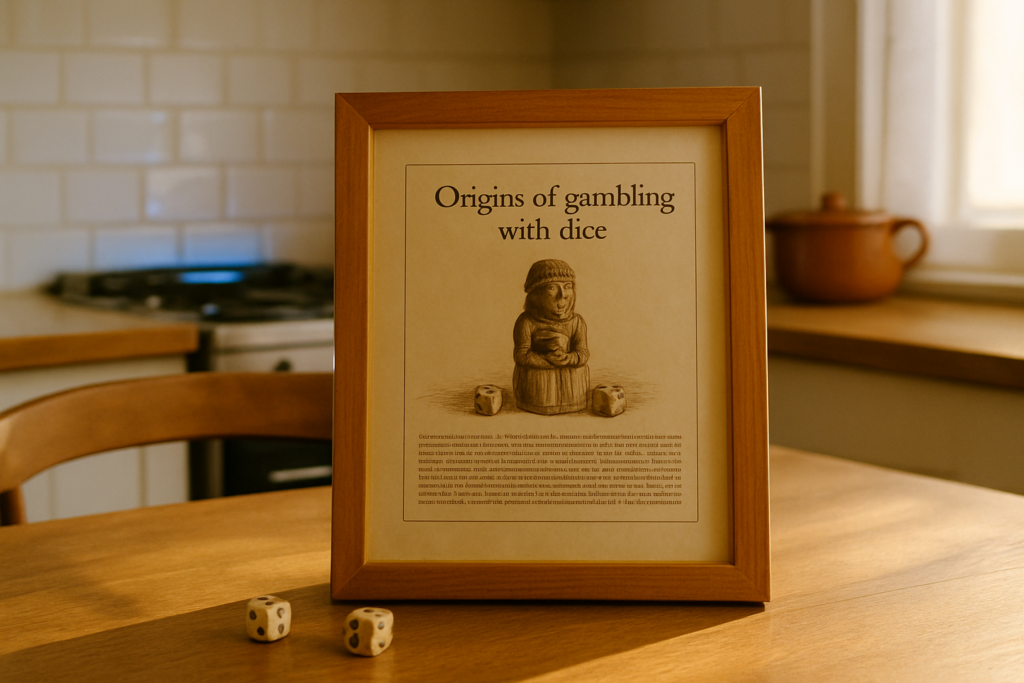Ever wondered about the origins of casinos and how the concept of gambling houses first came into existence? In this article, I’ll delve into the intriguing history of the first casinos and explore how these establishments laid the foundation for the vibrant world of gambling we know today.
From ancient civilizations to the bustling streets of modern cities, the evolution of casinos has a rich and fascinating story that has captivated people for centuries. Join me as we travel back in time to uncover the roots of this enduring form of entertainment and delve into the beginnings of the gambling industry.
Through a lens of history and innovation, we’ll explore the cultural, social, and economic factors that contributed to the rise of the first casinos, shedding light on the pivotal moments that shaped the landscape of gambling around the globe. Get ready to embark on a journey through time and discover the captivating origins of these iconic establishments.
Early Forms of Gambling
Exploring the early forms of gambling sheds light on the fascinating evolution of this popular pastime. Ancient civilizations, such as the Mesopotamians and Ancient Egyptians, engaged in various gambling activities that laid the foundation for modern-day casinos. These early forms of gambling were not just about entertainment but also held cultural and social significance within these societies.
In Mesopotamia, one of the earliest recorded forms of gambling was the casting of lots, where players would cast sticks or bones to determine outcomes. This practice was prevalent in decision-making processes, religious rituals, and even predicting the future. The Mesopotamians believed that the gods influenced the results, making it a sacred and revered activity.
Similarly, in Ancient Egypt, the ancient Egyptians enjoyed games of chance that involved dice and boards with markings for betting. These games were not only sources of amusement but also played in the belief that luck and fate could be influenced through strategic gameplay. Gambling in Ancient Egypt was intertwined with religious beliefs and mythological symbolism, adding a mystical element to the practice.
As civilizations advanced and societies evolved, gambling continued to thrive, adapting to new technologies and social norms. The early forms of gambling laid the groundwork for the sophisticated and diverse gambling industry we see today, shaping the development of casinos and gaming establishments across the globe. The roots of gambling run deep, with each civilization adding its unique flair to this timeless form of entertainment.
Rise of Gambling Houses
Gambling houses have a fascinating history that traces back to ancient civilizations, where the concept of wagering and games of chance began to take shape. These early establishments served as the precursors to the modern-day casinos we are familiar with today.
- Development of the First Casinos
The development of the first casinos can be linked to the rise of gambling houses in various regions around the world. One notable example is the Ridotto in Venice, Italy, established in 1638 as one of the earliest known gambling houses. The Ridotto was a pioneering venture that provided a controlled environment for gambling activities and laid the foundation for future casinos.
- Popular Games in the Early Casinos
In the early casinos, a variety of games emerged as favorites among players seeking entertainment and excitement. Games like Baccarat, a card game of chance that originated in Italy, gained popularity for their simplicity and thrill. Other common games included Faro, a French gambling card game, and Roulette, a classic casino game that continues to captivate players globally with its spinning wheel and betting options.
Evolution of Casino Culture
Exploring the evolution of casino culture unveils a fascinating journey that has shaped the gambling industry into what it is today. From the inception of early gambling houses to the sophisticated modern-day casinos, the transformation has been significant. As civilizations embraced games of chance and entertainment, the concept of casinos evolved with societal changes, paving the way for the extravagant gambling venues we know today.
In the early stages, gambling houses served as social hubs where individuals gathered to enjoy various games, marking the beginning of casino culture. These establishments not only offered a platform for gaming but also fostered social interactions and a sense of community among players. As the popularity of gambling grew, so did the casinos, expanding their offerings and attracting a diverse audience.
The evolution of casino culture also saw the incorporation of opulence and luxury in casino design and amenities. From lavish interiors to world-class entertainment, modern casinos strive to create an immersive and unforgettable experience for their patrons. The fusion of entertainment, fine dining, and gaming has redefined the casino experience, making it a sought-after destination for leisure and enjoyment.
Furthermore, technological advancements have played a pivotal role in shaping the contemporary casino culture. The advent of online casinos has revolutionized the way people access and enjoy gambling, making it more convenient and accessible than ever before. Virtual reality, mobile gaming, and live dealer experiences have enhanced the interactive nature of casinos, appealing to a new generation of players.
The evolution of casino culture has been a dynamic and transformative journey, adapting to changing times and preferences. From humble beginnings to extravagant resorts, casinos have evolved into multifaceted entertainment complexes that continue to captivate audiences worldwide. The blend of tradition, innovation, and luxury has solidified the place of casinos in the global entertainment landscape, ensuring their enduring popularity for years to come.
Impact of the First Casinos on Society
Exploring the impact of the first casinos on society reveals a multifaceted influence that transcends mere entertainment. The emergence of these early gambling establishments marked a significant shift in social dynamics and cultural norms.
Socioeconomic Implications:
|The establishment of the first casinos created new economic opportunities and generated revenue for governments and local communities.
These venues attracted a diverse range of patrons, fostering interaction among people from different social strata and backgrounds.
Cultural Influence:
Casinos became symbols of leisure and extravagance, shaping societal perceptions of entertainment and luxury.
The popularity of casino games introduced new forms of social recreation and leisure activities, influencing social gatherings and events.
Legal and Regulatory Framework:
The presence of casinos necessitated the development of legal frameworks and regulations to govern gambling activities.
The introduction of laws and regulations surrounding gambling reflected societal values and attitudes towards risk-taking and entertainment.
Social Behavior and Norms:
Casino culture influenced social behavior by blurring the lines between leisure and risk-taking.
The acceptance of gambling as a form of entertainment contributed to shifting societal norms regarding leisure activities.
Technological Advancements:
The evolution of casinos catalyzed technological advancements in gaming and entertainment.
Innovations in gaming technology not only enhanced the gaming experience but also influenced societal attitudes towards technology and innovation.
Understanding the impact of the first casinos on society provides insight into the broader implications of gambling establishments beyond mere entertainment. The societal changes catalyzed by the advent of early casinos continue to reverberate through modern-day cultural, economic, and regulatory frameworks.



 Salvatore Loar is the insightful author of Gamble Wise Roots, a platform dedicated to delivering the latest news and updates from the gambling world. His expertise lies in simplifying casino basics, offering a clearer understanding of odds, and exploring the rich evolution of casino games.
Salvatore’s deep dive into the origins of betting provides readers with a well-rounded perspective on the history and strategies behind modern gambling. Through his work, he seeks to inform and engage players of all levels.
Salvatore Loar is the insightful author of Gamble Wise Roots, a platform dedicated to delivering the latest news and updates from the gambling world. His expertise lies in simplifying casino basics, offering a clearer understanding of odds, and exploring the rich evolution of casino games.
Salvatore’s deep dive into the origins of betting provides readers with a well-rounded perspective on the history and strategies behind modern gambling. Through his work, he seeks to inform and engage players of all levels.
